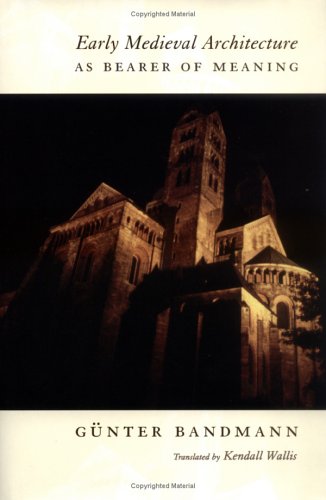

Most ebook files are in PDF format, so you can easily read them using various software such as Foxit Reader or directly on the Google Chrome browser.
Some ebook files are released by publishers in other formats such as .awz, .mobi, .epub, .fb2, etc. You may need to install specific software to read these formats on mobile/PC, such as Calibre.
Please read the tutorial at this link. https://ebooknice.com/page/post?id=faq
We offer FREE conversion to the popular formats you request; however, this may take some time. Therefore, right after payment, please email us, and we will try to provide the service as quickly as possible.
For some exceptional file formats or broken links (if any), please refrain from opening any disputes. Instead, email us first, and we will try to assist within a maximum of 6 hours.
EbookNice Team

Status:
Available0.0
0 reviews
ISBN-10 : 0231127049
ISBN-13 : 9780231127042
Author: Gunter Bandmann, Kendall Wallis
At last available in English, this classic text was originally published in Germany in 1951 and has been continuously in print since then. Gunter Bandmann analyzes the architecture of societies in western Europe up to the twelfth century that aspired to be the heirs to the Roman Empire. He examines the occurrence and recurrence of basic forms not as stylistic evolutions but as meaningful expressions of meta-material content and develops an architectural iconography of symbolic, historical, and aesthetic elements.
1: The Problem of Meaning in Architecture
The Essence of Meaning
The Medieval Work of Art
Aesthetic Meaning
The Current State of Research on Symbolic and Historical Meaning in Architecture
Sources and Methods: The Sources
Sources and Methods: The Methods
2: The Symbolic Meaning of Buildings According to Written and Visual Sources
The Written Sources
The Medieval Copy
Historical Consciousness in the Middle Ages
The Intended Purpose
The Allegorical Meaning
The Church as Heavenly City
The Visual Sources
The Formal Consequences of Allegorical Meaning
The Meaning of the Keystone
The Column as Figure
City and Castle as Model of the Church
The Two-Towered City Gate
The City Wall
The Three-Tower Group
The Niche-Portal
The Three-Arched Opening
Summary
3: Historical Meaning
Tradition and Habit
Turning Toward Historicity
State, Religion, and Law
Sacred Kingship
Writing
Portraiture
Images of Events
The Demarcated Area
Dwelling, Tomb, Temple
Building in Stone
The Holy Place
Spolia
Axial Arrangement Within a Structured Area
Axial Arrangement Within a Building
The Effects of Historical Meaning
The Emperor and Architecture
The Transept as Throne Hall
The Cruciform Tomb
The Three-Chambered Layout
The Architectural Baldachin
The Transept Basilica and Cruciform Basilica of the Franks Before Charlemagne
The Central-Plan Building
The Westwork
Tendencies of the Western Imperium
The Beginnings of Norman Architecture in Relation to the Architecture of the Empire
The Roman Idiom of the Western Imperium
The Double Choir
Architectural Ornament
The Emperor’s Rivals
The Roman Curia
The Monastic Orders
The Italian Cities
Bishops and Regional Lords
The “Nations”
4: The Decline of Symbolic and Historical Meaning
Reform and Secularization
The Predominance of Artistic Tendencies
The New Awareness of Space
Summary
Afterword
Notes
Bibliography
medieval architecture
early medieval architecture
early medieval architecture as bearer of meaning
history of medieval architecture
architecture of early medieval period in india
Tags: Early Medieval, Architecture, Bearer of Meaning, Gunter Bandmann, Kendall Wallis